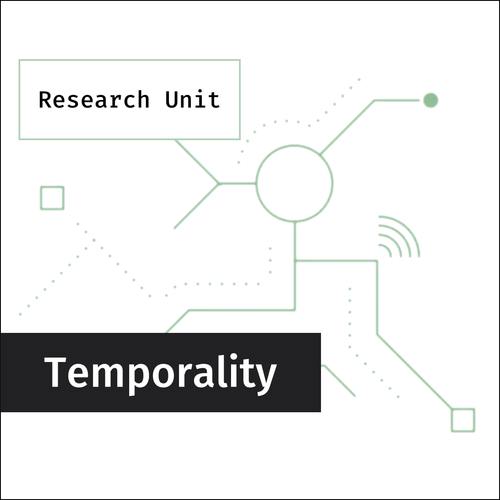Research Unit Temporalities
The Research Unit Temporalities studies how expectations about time—progress, growth, future, sustainability, historical responsibility —shape contestations of the liberal script. Research from the first funding phase showed that many contestations originate from perceived breaks in liberal temporal promises, including stalled life trajectories, declining intergenerational mobility, and climate-induced uncertainties. Such ruptures can deepen frustration with liberal norms and motivate demands for alternative political futures.
In the second phase, Temporalities examines the temporal dynamics through which contestations unfold. One strand analyzes when unmet expectations are perceived as temporary setbacks and when they are understood as fundamental and irreversible breaks. A second strand explores how political actors respond to temporal grievances—through crisis management, redistribution, long-term planning, or short-term stabilization policies—and how these responses reshape the credibility of liberal commitments. A third strand investigates how liberal and illiberal actors construct competing narratives of past and future that influence legitimacy, solidarity, and the perceived viability of liberal orders.
Combining sociology, political science, history, and education studies, Temporalities provides a temporal perspective on democratic resilience. It analyzes when temporal conflicts intensify contestations and when they create opportunities for re-scripting that renews the normative foundations of the liberal script.
Research Projects
Varieties of Diversity ScriptsProf. Dr. Gülay Çağlar, Prof. Dr. Yasemin Soysal, Prof. Dr. Kathrin Zippel
Sep 01, 2022 — Aug 31, 2025 Objects from Afar and Sustainable Liberal Identity - The Contestation of Material Representation in National Museums of the Global North
Prof. Dr. Philipp Lepenies, Prof. Dr. Marianne Braig, Prof. Dr. Gülay Çağlar, Prof. Dr. Andreas Eckert, Prof. Dr. Jessica Gienow-Hecht
Nov 01, 2022 — Aug 31, 2025 Negotiating the Future of Education: The UNESCO’s Futures of Education-initiative and the OECD’s Future of Education and Skills 2030-initiative
Prof. Dr. Florian Waldow, Prof. Dr. Tobias Berger, Prof. Dr. Marcelo Carus, Walter Fritsch, Ana Werkstetter Caravaca
Feb 01, 2021 — Feb 14, 2024 ‘Transformative Constitutionalism’ and the Borderlines of Liberalism
Prof. Dr. Tobias Berger, Prof. Dr. Philipp Dann, Vikram Aditya Narayan, Uday Vir Garg
Jan 01, 2020 — Dec 31, 2023 Gender, Borders, Memory: Contestation of the Liberal Script in the Catalan Separatist Movement
Prof. Dr. Marianne Braig, Prof. Dr. Gülay Çağlar, Prof. Dr. Jessica Gienow-Hecht, Johannes Heß, Tobias Klee
Sep 01, 2020 — Aug 31, 2023 High Hopes and Broken Promises: Young Adult Life Courses in Senegal
Prof. Dr. Anette Fasang, Dr. Noella Binda Niati
Aug 07, 2020 — Aug 06, 2023 Debating the Legitimacy of Borders: How the Admission or Refoulement of Refugees is Justified Across the World
Prof. Dr. Marianne Braig, Dr. Daniel Drewski, Prof. Dr. Jürgen Gerhards, Prof. Dr. Steffen Mau
Oct 01, 2019 — Sep 30, 2022

